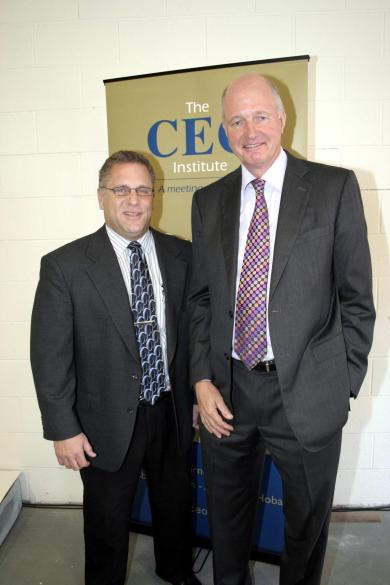
At a meeting of the CEO Institute in Sydney this week, Gavrilos (pictured, left, with Institute chairman Ewoud Kulk) told delegates that the traditional arrangement of manufacturing industries is rapidly changing as the pressures of globalisation, a higher-value Australian dollar, and technology advances such as RFID and e-business, placed greater burdens on companies to increase efficiencies and reduce manufacturing costs.
This in turn will lead to consolidation of many companies to find those efficiencies, thinning out the ranks of medium-size companies in the process. Printing is feeling that impact as much as any other manufacturing industry, he declared.
Gavrilos offered several suggestions on how companies can minimise the impact of increased competition, especially from cheap overseas markets with the importation of “complete” products which require no packaging or printing. These included growing the size of the local market through innovation, rationalising the company’s business plan, ruthless cash management and a greater focus on execution of the company’s business strategy for the future.
Education of staff and middle management, along with better leveraging of technology, would also contribute to higher productivity and efficiencies and ongoing manufacturing success, he said.
“Don’t reduce head count, rearrange the work,” he told delegates. “Above all, work on what’s important, not on what’s urgent.”
The CEO Institute is a network of Australasian business leaders who meet on a regular basis to discuss and develop leadership skills and expertise, and to promote strategic thinking in the manufacturing sector.
Comment below to have your say on this story.
If you have a news story or tip-off, get in touch at editorial@sprinter.com.au.
Sign up to the Sprinter newsletter

